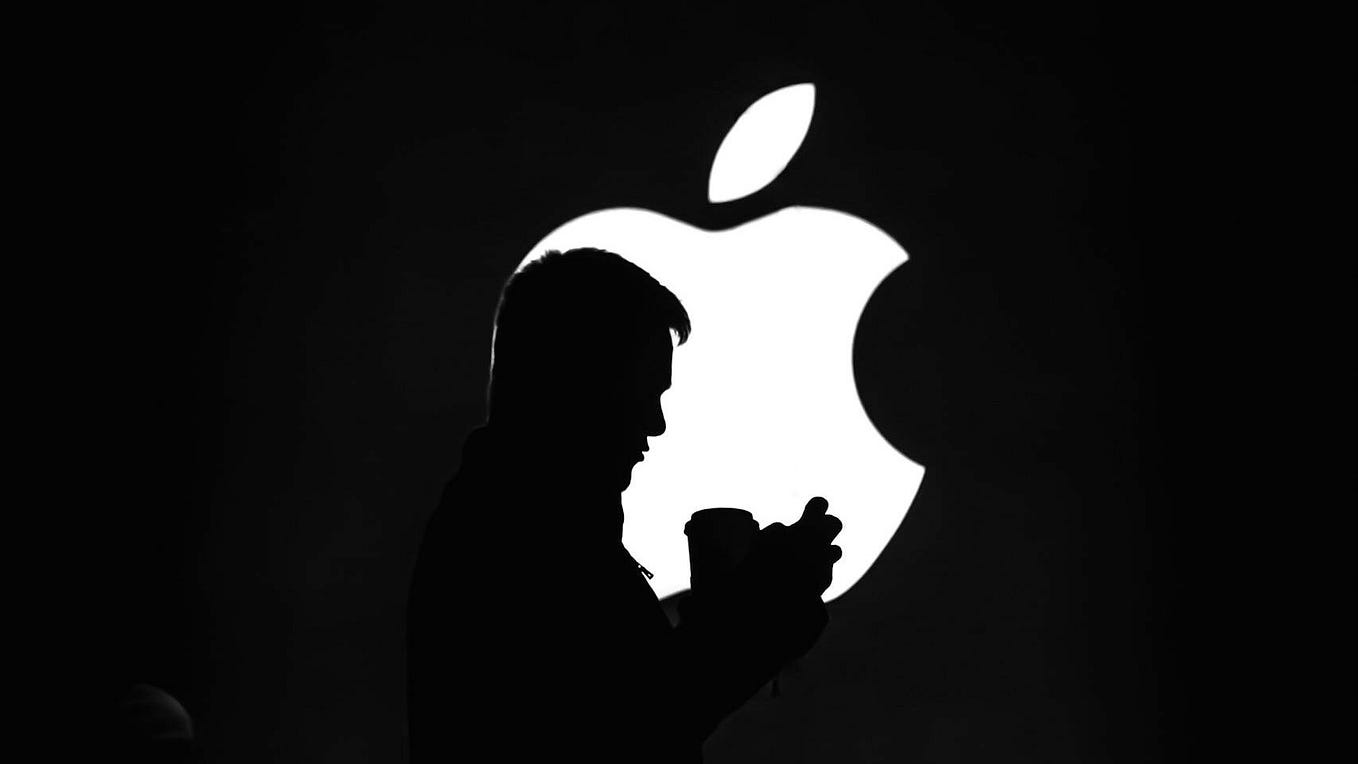5 Toxic Habits That Destroy Your Brain — Here’s What to Do Instead
摧毁你大脑的 5 种有害习惯 —— 应该做的事情
Commit to A Clear, Seemingly Impossible Goal
承诺一个明确的,看似不可能实现的目标
作者使用 Midjourney 创建的图像
Your brain can either work for you or against you.
你的大脑可以为你工作,也可以反对你。
It does and looks for whatever you tell it.
它会寻找并执行你告诉它的任何事情。
If you commit to pursuing a clearly defined, seemingly impossible goal, you’ll attract all the necessary resources to make it happen.
如果你致力于追求一个明确定义的,看似不可能的目标,你将会吸引到所有必要的资源来实现它。
Your transformation starts in the supercomputer between your ears.
你的转变始于你双耳之间的超级计算机。
You can decide to learn skills that are completely beyond your current level, or you can decide to get trapped in a slow cycle of counterproductive habits.
你可以决定学习完全超出你当前水平的技能,或者你可以决定陷入低效习惯的缓慢循环中。
One makes your brain fit and healthy, and the other destroys it — I’m sure you can guess which is which.
一个让你的大脑保持健康,另一个则摧毁它 — 我相信你可以猜出哪个是哪个。
The point I’m making is how you deploy your brain is your choice.
我要表达的观点是,你如何运用你的大脑是你的选择。
We live in a time when it’s easier than ever to build habits conducive to where you want to go in life.
我们生活在一个比以往任何时候都更容易养成有助于实现生活目标的习惯的时代。
We know more, and we’re equipped with more. This makes us more advanced than ever.
我们知道得更多,拥有更多的装备。这使我们比以往任何时候都更先进。
Yet, most people choose a life of distraction.
然而,大多数人选择了分心的生活。
Their habits are toxic, and they destroy their brain.
他们的习惯有害健康,破坏大脑。
As a result, they’re unable to make meaningful progress toward a happier, more fulfilling life.
因此,他们无法朝着更快乐、更充实的生活迈出有意义的步伐。
In this story, I’ll help you become aware of 5 of those toxic habits.
在这个故事中,我将帮助你意识到其中 5 个有害习惯。
I’ll also give you the tools to train your brain to work in your favor.
我还会给你提供工具,训练你的大脑为你服务。
If you follow these tips, you’ll know exactly how to get the results you want for yourself.
如果你遵循这些建议,你将准确知道如何为自己获得想要的结果。
1. Procrastinating in the morning
早上拖延
“Start right. If you keep doing what was started right, it will result in a right ending.”
开始就对了。如果你继续做对的事情,最终结果也会是对的。
— Zain Hashmi — 赛义德·哈什米
How you train your brain is how you will be.
你训练大脑的方式决定了你的未来。
Most people train their brains to procrastinate — and it’s usually unintentional.
大多数人训练他们的大脑拖延——而且通常是无意识的。
But your brain doesn’t care whether you deliberately configured it to be the way it is or not; It just listens to whatever you tell it to do.
但是你的大脑并不在乎你是否有意识地配置它成为现在这个样子;它只会听从你告诉它要做的事情。
Here’s the thing: you can’t get into flow when you’ve conditioned your brain to be slow.
事情是这样的:当你让大脑习惯了缓慢,你就无法进入状态。
Your brain will always be distracted and never fully immersed in your actions.
你的大脑将会一直分心,永远无法完全沉浸在你的行动中。
It doesn’t help that society has trained and wired us for consumption.
社会训练和引导我们消费并没有帮助。
The other day, someone said to me, “What’s the point of having a phone if you’re going to put it on DND,” because their call to me didn’t go through — all they wanted was to ask to borrow something for a social media picture.
前几天,有人对我说:“如果你要把手机调成免打扰,那还有什么意义呢?”因为他们给我打电话时没能接通——他们只是想借点东西拍社交媒体照片。
Most people around you are trapped in consumption.
你周围的大多数人都被消费所困。
They NEED it if they’re able to get going in the morning.
如果他们早上要开始工作,他们需要它。
But this conditions you to procrastinate.
但这让你养成拖延的习惯。
When you wake up and grab your phone to start consuming, you’re instantly scattering your brain.
当你醒来拿起手机开始消费时,你立刻让大脑散乱。
You’re confusing your priorities.
你搞混了你的优先顺序。
Once your priorities get confused, you involve yourself in more than your brain can manage before you start the real work you’re supposed to do.
一旦你的优先事项混乱,你会卷入比你的大脑能够处理的更多事情,而在开始你应该做的真正工作之前。
Not only does this create unnecessary distractions, it also cripples your odds of success.
这不仅会造成不必要的干扰,还会削弱你成功的机会。
Benjamin Hardy once said, “Being distracted makes you busy. Being busy makes your brain slow.”
本杰明·哈迪曾经说过:“分心让你忙碌,忙碌让你的大脑变慢。”
When your brain is slow, you procrastinate and eventually feel bad about yourself.
当你的大脑运转缓慢时,你会拖延,最终会对自己感到难过。
Instead of procrastinating in the morning, it’s far healthier and more effective to wake up with clarity on your most important task for the day and then spend the first few hours hacking away at it.
与其在早上拖延,更健康、更有效的做法是清楚地知道一天中最重要的任务,然后在最初几个小时里全力以赴。
Mark Twain calls this eating the frog.
马克·吐温称之为吃青蛙。
He said, “If you have to eat a live frog, do it first thing in the morning and nothing worse will happen to you for the rest of the day.”
他说:“如果你必须吃活青蛙,那就在早上第一件事就做,那么在接下来的一天里就不会发生更糟糕的事情了。”
By completing your most important task first thing in the morning, you can train your brain to be proactive and remain in a state of flow.
通过在早上首先完成最重要的任务,您可以训练您的大脑变得主动,并保持在一种流畅状态中。
Note that “most important task” means life-changing work.
请注意,“最重要的任务”意味着改变生活的工作。
For example, the first few things I do in the morning are get out of bed right after waking, take a leak, write in my journal, and then start writing on Medium.
例如,早上我做的头几件事情是醒来后立刻起床、上个厕所、写日记,然后开始在 Medium 上写作。
There’s no delay in action.
行动没有延迟。
I’ve primed my brain to do what it needs to do when it needs to do it.
我已经训练好我的大脑,在需要的时候做需要做的事情。
My first thought is to create rather than consume.
我的第一个想法是创造而不是消费。
When you start working on your most important tasks first, your brain deviates toward action.
当你首先开始处理最重要的任务时,你的大脑会转向行动。
You stop procrastinating.
你停止拖延。
You get your first few wins before people wake up.
在人们醒来之前,你就已经获得了你的前几次胜利。
This momentum stays with you throughout the day, and you accomplish much more in your days.
这种势头会伴随你一整天,让你在生活中取得更多成就。
Most people don’t get much done because they trained themselves to procrastinate.
大多数人做不了太多事情,因为他们训练自己拖延。
They’re reactive in the morning.
他们早上比较反应迟钝。
You’ll win the rest of the day if you get the morning right.
如果你把早上过好了,你就会赢得剩下的一天。
Eat your biggest, ugliest frog within a few minutes of waking.
醒来后几分钟内就吃掉你最大最难吃的青蛙。
This is how you reach peak productivity and stay in a flow state.
这就是如何达到最高生产力并保持心流状态。
2. Overconsuming 过度消费
“Everlasting pain is often caused by the pursuit of fleeting pleasure.”
永恒的痛苦常常是由追求短暂快乐所引起的。
— Mokokoma Mokhonoa 莫科科马·莫科诺亚
We live in a time where it’s super easy to overconsume.
我们生活在一个极易过度消费的时代。
When my parents were kids, they had to read books to figure stuff out.
当我父母还是孩子的时候,他们不得不阅读书籍来弄清楚事情。
For them, overconsuming meant spending their entire day reading or making countless trips to the store to buy food.
对他们来说,过度消费意味着整天花在阅读或频繁往返商店购买食物。
This just wasn’t practical.
这只是不切实际的。
Nowadays, all you have to do is press a few buttons.
如今,你只需要按几下按钮就可以了。
For example, if I want to know what Kim Kardashian is up to, I can just log into Instagram. If I want to find a date for the weekend, I can just swipe right a couple of times.
例如,如果我想知道金·卡戴珊在忙什么,我只需登录 Instagram。如果我想找个周末约会对象,我只需向右滑动几次。
That’s not to say access and advancement are a bad thing… It’s not.
这并不是说获取和进步是一件坏事... 不是的。
The problem starts with what you’re consuming.
问题始于你所消费的东西。
Most of the things people consume are junk.
大多数人消费的东西都是垃圾。
When you’re constantly consuming garbage, you’re training your brain to have low standards for yourself.
当你不断消费垃圾时,你在训练你的大脑对自己设定低标准。
The worst part is most people consume way too much and still feel like they need more.
大多数人最糟糕的部分是他们消费得太多,但仍然觉得自己需要更多。
According to Benjamin Hardy, this is “the mental equivalent of an obese person who thinks they’re hungry all the time.”
根据本杰明·哈迪的说法,这就是“一个肥胖的人整天觉得自己饿的心理等同物”。
Most people already know what they need to do to make progress on their goals, but they’d rather seek more stimulation and consumption because they don’t feel like they’ve had enough.
大多数人已经知道他们需要做什么来实现目标,但他们更愿意寻求更多刺激和消费,因为他们觉得还不够。
They’re mentally obese. 他们在精神上肥胖。
I like how Benjamin Hardy put it – he said:
我喜欢本杰明·哈迪的说法 - 他说:
“Most people don’t have a healthy information diet. Most people are after the low-hanging fruit, the “fast food” of information — easy to access and just as easily destructive to your mental focus. High-consumption, high-artificial information diets produce mediocre brain capacity at best.”
大多数人没有健康的信息饮食。大多数人追求低成本的信息,即信息的“快餐”——容易获取,但同样容易破坏你的精神专注力。高消耗、高人为的信息饮食最多只能产生平庸的大脑能力。
When you consume low-quality information, your worldview becomes low-quality.
当你消化低质量的信息时,你的世界观也会变得低质量。
As Zig Ziglar once said, “Your input determines your outlook. Your outlook determines your output, and your output determines your future.”
正如 Zig Ziglar 曾经说过的:“你的输入决定你的观点。你的观点决定你的产出,而你的产出决定你的未来。”
If you’re consuming crap, your outlook on the future will be crap.
如果你消耗垃圾,你对未来的看法也会是垃圾。
Your standards will be low level.
你的标准将会是低水平的。
All of this stuff is teaching your brain how to function.
所有这些东西都在教导你的大脑如何运作。
It can only make do with what it’s given.
它只能凑合着用它所给予的。
To program it to function in your favor, you must eliminate all the junk.
要使其按照您的意愿运行,您必须清除所有垃圾。
Consume less but better information.
消费更少但更好的信息。
Follow Pareto’s principle. 80/20.
遵循帕累托法则。80/20。
20% of what you do produces 80% of your results.
你所做的工作中,20%的努力产生了 80%的成果。
… So focus on that 20%
所以专注于那 20%
Strip away 80% of what you consume. You don’t need it.
剥离掉你消费的 80%。你不需要它。
Benjamin Hardy said, “Part of training your brain to become effective, phenomenal, and powerful, is to have clear filters and standards for what you say ‘yes’ and ‘no’ to.”
本杰明·哈迪说:“训练大脑变得高效、非凡和强大的一部分,就是设立清晰的过滤器和标准,决定你对什么说‘是’,对什么说‘否’。”
Seek quality instead of quantity.
追求质量而非数量。
Whatever you let in signals to your brain that it’s important; thus, your brain will allow it to evade its filter.
无论你让什么进入,都会向你的大脑发出信号表明它很重要;因此,你的大脑会让它逃过过滤器。
You know a person by what they’re committed to.
通过一个人所承诺的事情,你可以了解一个人。
What you regularly say “Yes” to defines you.
你经常说“是”的事情定义了你。
This includes your weight, income, relationships, and more.
这包括您的体重、收入、人际关系等等。
What you have now is the product of what you were committed to in the past.
你现在拥有的是你过去所承诺的成果。
To have a better future, you must commit to a brighter future.
为了拥有更美好的未来,你必须致力于一个更加光明的未来。
Consume less, but better.
少吃,但吃好。
This will teach your brain to filter out things that don’t move you toward where you want to go.
这将教会你的大脑过滤那些不会让你朝着目标前进的事物。
You’ll also raise your standard and make your actions more effective, getting you where you want to go faster.
您还将提高自己的标准,使自己的行动更加有效,从而更快地达到目标。
3. Trying to juggle too much
试图应付太多
“If you have more than three priorities, then you don’t have any.”
如果你有超过三个优先事项,那么你就没有任何一个。
— Jim Collins 吉姆·柯林斯
There’s only so much you can get done in a given day.
在一天之内你能做的事情是有限的。
Once you exceed this limit, you’ll wander into a realm of undirected busy work.
一旦超过这个限制,你就会陷入一种无目的的忙碌状态。
This is because every time you switch tasks, your brain has to pay a penalty for the transition since it takes time to “download” the next task into context in your working memory.
这是因为每次你切换任务时,你的大脑都要为这个转换付出代价,因为它需要时间将下一个任务“下载”到你的工作记忆中。
Not only does this shatter your focus and tip you out of flow, but you also waste energy in the process.
这不仅会打破你的专注力,让你失去状态,而且还会在这个过程中浪费能量。
You’re not able to go deep.
你无法深入。
Psychologists call this phenomenon task switching.
心理学家称之为任务切换。
You must train your brain to focus deeply on one task for 3–4 hours to achieve big things.
您必须训练大脑专注于一项任务 3-4 小时,才能取得重大成就。
When you commit to doing one thing at a time, your brain doesn’t waste energy switching tasks.
当你承诺一次只做一件事情时,你的大脑不会浪费能量来切换任务。
You remain in flow. 你保持在状态中。
This is why I only do research when I’m researching for my Medium stories. I don’t task switch. I write when it’s time to write and edit when it’s time to edit.
这就是为什么我只在为我的 Medium 故事做研究时才进行研究。我不会频繁切换任务。写作时就写作,编辑时就编辑。
You’ve got to train your brain to focus on one thing at a time.
你必须训练你的大脑一次只专注于一件事。
When you’re doing a bunch of stuff throughout the day, you prevent your brain from going deep in the few things that truly matter.
当你整天忙于做很多事情时,你会阻止大脑深入专注于那些真正重要的事情。
You’re literally obstructing your path to greatness.
你实际上是在阻碍自己通往伟大的道路。
As a rule of thumb, you should never have more than 3 priorities in a day.
作为一个经验法则,你一天内不应该有超过 3 个重点。
Once you exceed this number, you’re trespassing in unproductive territory.
一旦您超过这个数字,您就会进入无效果的领域。
4. Setting goals based on where you are or not setting them at all
根据你的现状设定目标,或者干脆不设定目标。
“If you want to be happy, set a goal that commands your thoughts, liberates your energy and inspires your hopes.”
如果你想要快乐,就设定一个能够引导你的思维、释放你的能量并激发你希望的目标。
— Andrew Carnegie 安德鲁·卡内基
Most people fall into one of two categories:
大多数人可以分为两类:
- They don’t have a clearly defined goal
他们没有明确的目标 - They have a clearly defined goal but only an incremental gain.
他们有一个明确的目标,但只有逐步的收益。
Both of these are bad for your brain.
这两者都对你的大脑有害。
Like the Chesire Cat said in Lewis Carroll’s classic children’s tale, Alice in Wonderland, “If you don’t know where you’re going, any road will take you there.”
正如刘易斯·卡罗尔经典儿童故事《爱丽丝梦游仙境》中的柴郡猫所说:“如果你不知道自己要去哪里,那么任何路都会带你到那里。”
Put another way: 换句话说:
If you don’t have a clearly defined goal, your strategy can be anything, and you’ll still succeed at reaching your non-goal.
如果你没有明确的目标,你的策略可以是任何事情,你仍然会成功地达到你的非目标。
The other problem is a clearly defined goal that only incrementally builds on where you are.
另一个问题是一个明确定义的目标,只是在你目前的基础上逐步建立。
For example, surviving to the end of the month when you get your paycheck or getting to the end of the week to have two days off.
例如,活到月底领到工资,或者熬到周末有两天休息。
Their future is short-sighted and not compelling enough to transform them into a bigger, better version of themself.
他们的未来是短视的,不足以激励他们变成更好更大的自己。
Dan Sullivan refers to this as a 2x vision.
丹·沙利文将这称为 2 倍愿景。
It’s when you extrapolate your current situation to continue your future.
这是当你推断你目前的情况以延续你的未来。
You might say, “Since I’m a junior engineer, my goal is to become a senior engineer.”
你可能会说,“因为我是一名初级工程师,我的目标是成为一名高级工程师。”
You’re just continuing a trend. You’re taking a linear path.
你只是在延续一种趋势。你正在走一条线性的道路。
This is mentally destructive because it enables you to retain most of your current life. It’s here where overconsumption begins.
这是有害于心理健康的,因为它让你保持了大部分现在的生活。就在这里,过度消费开始了。
According to Benjamin Hardy and Dan Sullivan, the authors of 10x Is Easier Than 2x, going after 10x is the way to live the happiest and most fulfilling life.
根据本杰明·哈迪和丹·沙利文的观点,他们是《10 倍容易,胜过 2 倍》一书的作者,追求 10 倍是过上最幸福、最充实的生活方式。
10x is when you define and commit to a seemingly impossible goal.
10 倍是当你定义并承诺一个看似不可能的目标。
Most people don’t do it because it means letting go of 80% of their current life, which is usually their security blanket.
大多数人不这样做,因为这意味着放弃他们目前生活中的 80%,而这通常是他们的安全保障。
Jim Rohn gave us a glimpse of what it means to go 10x when he said, “Set a goal to become a millionaire for what it makes of you to achieve it. Do it for the skills you have to learn and the person you have to become.”
吉姆·罗恩在谈到“设定成为百万富翁的目标,是为了通过实现目标而让自己变得更好。为了你需要学习的技能和你需要成为的人。”时,让我们看到了什么是 10 倍的意义。
He understood that big goals are the root of personal transformation.
他明白,宏伟的目标是个人转变的根源。
2x goals often tend to stem from a place of need.
2x 目标往往源自需求。
You NEED to get married.
你需要结婚。
You NEED a promotion. 你需要晋升。
You NEED to survive to the end of the month.
你需要活到月底。
The issue with such goals is once they’re achieved, your brain will find something else to NEED because it was never taught how to create a vision for what you WANT.
这样的目标问题在于一旦实现了,你的大脑会找到其他需要,因为它从未学会如何为你想要的事情创建愿景。
If you want to level up your brain, you must have a seemingly impossible future self you’re trying to manifest.
如果你想提升你的大脑,你必须拥有一个看似不可能的未来自己,你正在努力实现。
This forces your brain to operate at a higher level.
这迫使你的大脑运转在更高的水平。
You’ll naturally begin to attract the right people, resources, and opportunities into your life to advance you toward your desired outcome.
您会自然而然地开始吸引正确的人、资源和机会进入您的生活,推动您朝着期望的结果前进。
5. Going through life at 100mph
以每小时 100 英里的速度度过一生
“The unexamined life is not worth living.”
“未经审视的生活是不值得活的。”
— Socrates 苏格拉底
Just because you’re moving fast doesn’t mean you’re going somewhere.
只是因为你走得快,并不代表你正在往某个地方走。
You must take time to reflect on your goals and how your current actions are helping you achieve them.
你必须花时间反思你的目标,以及你当前的行动如何帮助你实现这些目标。
Most people don’t do this, which is why most people don’t become world-class.
大多数人不这样做,这就是为什么大多数人不会成为世界级的人。
Reflection is a vital component of deep work and deliberate practice.
反思是深度工作和刻意练习的重要组成部分。
What progress have you made in the past week?
你在过去一周取得了什么进展?
If you don’t know, how do you get better?
如果你不知道,你怎么变得更好呢?
You must take time to observe, track, and report everything that moves you closer to your goals.
你必须花时间观察、追踪并报告一切让你更接近目标的事情。
Seeing this progress gives your brain a shot of motivation.
看到这种进步会让你的大脑充满动力。
You’ll instantly be motivated to make more progress.
您会立即被激励去取得更多进展。
As Pearson’s law states: 皮尔逊定律指出:
“That which is measured improves. That which is measured and reported improves exponentially.”
被测量的东西会得到改善。被测量并报告的东西会呈指数级改善。
Give your brain a chance to feel good for all the hard work it's putting in.
给你的大脑一个机会,让它因为付出的努力而感到愉快。
Take time to reflect and celebrate what you’re doing well.
抽出时间反思并庆祝自己所做得好的事情。
Not only does it make your brain feel good, but it also gives you the power to transform the meaning of your past.
它不仅让你的大脑感觉良好,还赋予你改变过去意义的力量。
When you address a past memory, you get to define what it means and how it makes you better.
当你回忆过去时,你可以定义它的意义以及它如何让你变得更好。
This is what I had to do when I left the cult…
当我离开邪教时,这就是我必须做的事情…
I sat down with a trusted person and shared all of my memories.
我和一位信任的人坐下来,分享了我所有的回忆。
He didn’t judge, nor did he add any input. He just listened.
他没有评判,也没有加入任何意见。他只是倾听。
The more I spoke about my experience, the more I realized I had the agency to label it as something positive.
我越说起我的经历,就越意识到我有权利将其定义为积极的事物。
In psychology, this is known as post-traumatic growth.
在心理学中,这被称为创伤后成长。
It’s when you experience positive psychological change as a result of struggling with highly challenging, highly stressful life circumstances.
这是指在应对高度具有挑战性、高度紧张的生活环境时,经历积极的心理变化。
Anyone can experience post-traumatic growth.
任何人都可以经历创伤后成长。
The secret is to define how you see your past.
秘诀在于定义你如何看待过去。
You can’t define your past if you don’t take time to reflect.
如果你不花时间反思,就无法定义你的过去。
Just slow down. 放慢速度。
You don’t need to go so fast.
你不需要走得那么快。
Focus on making meaningful progress.
专注于取得有意义的进步。
Stop and look at where you are, where you’ve come from, and where you’re going.
停下来,看看你现在在哪里,你来自哪里,以及你将要去哪里。
Are you on course? 你在正确的路线上吗?
The more you do this, the more you train your brain to seek opportunities that will bring you closer to your desired end.
你做得越多,就越训练你的大脑去寻找能让你更接近期望目标的机会。
Final thoughts 最后的想法
The effectiveness of your brain depends on your conditioning.
你大脑的效率取决于你的调节。
If you teach it to perform poorly with toxic habits, it will do as it’s told.
如果你教它养成有害习惯,它会照做。
It will also follow instructions if you train it to perform at peak levels.
如果您训练它达到最佳水平,它也会遵循指示。
You have the ability to achieve what may seem absurd to you right now, but it all depends on how you train your brain.
你有能力实现现在对你来说可能看起来荒谬的事情,但这一切取决于你如何训练你的大脑。
The truth is it wants to help you.
事实是它想要帮助你。
It wants to filter for what’s most important to you.
它想要过滤出对你最重要的内容。
It wants to find hidden treasures.
它想要找到隐藏的宝藏。
It wants to develop unique skills, abilities, and connections.
它想要发展独特的技能、能力和联系。
The only catch is you must be the one to program it to produce the results you’re most committed to.
唯一的条件是你必须亲自编程,以产生你最为执着的结果。
Thanks for reading! 谢谢阅读!
Join my email list for more content like this. When you sign up, you get a FREE copy of my short e-book — Don’t Just Set Goals, Build Systems.
加入我的电子邮件列表,获取更多类似内容。注册时,您将获得我的短电子书《不要只设定目标,建立系统》的免费副本。






